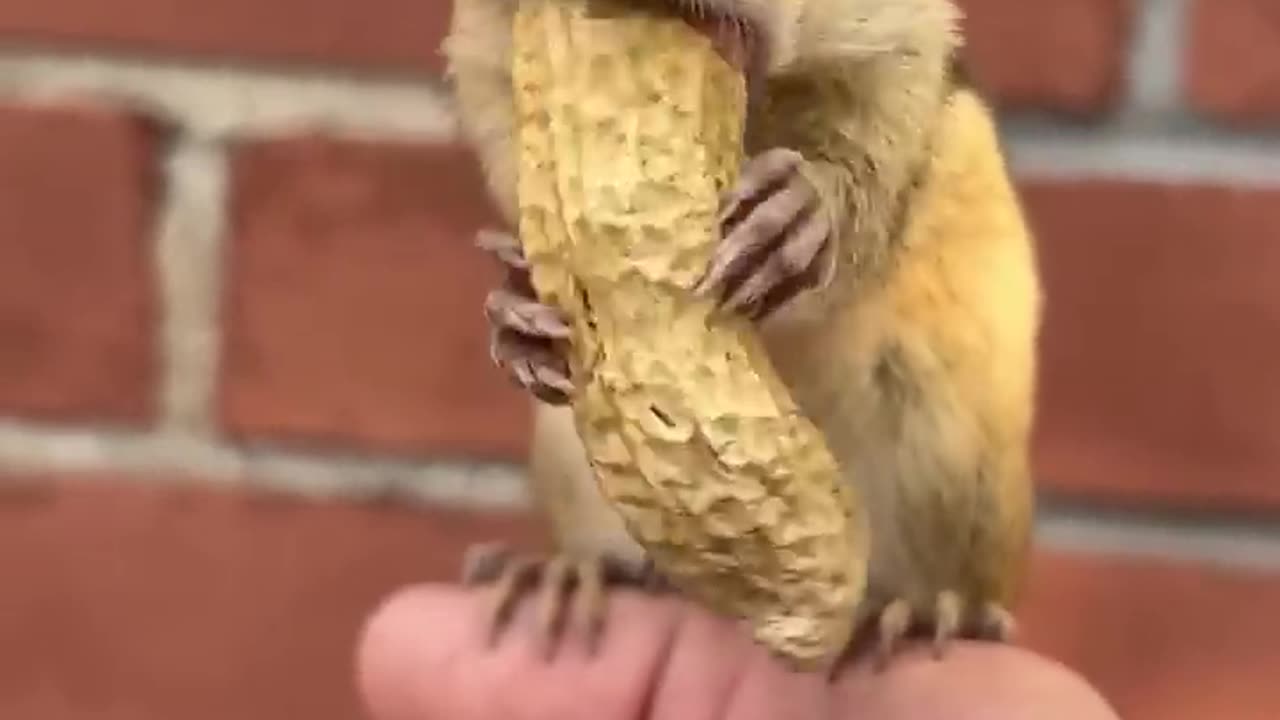Premium Only Content

Chipmunk🐿 N long peanut !
Sure! Chipmunks are small, striped rodents belonging to the Sciuridae family. Here's some comprehensive information about chipmunks:
1. Habitat: Chipmunks are native to North America and can be found in various habitats, including forests, woodlands, gardens, and parks. They prefer areas with plenty of cover and access to food sources.
2. Physical Characteristics: Chipmunks are typically 5 to 6 inches long, with a bushy tail that is approximately 3 to 4 inches long. They have distinctive stripes along their backs, which can vary in color and pattern depending on the species.
3. Behavior: These energetic creatures are diurnal, meaning they are most active during the daytime. They are excellent climbers and burrowers, creating complex systems of tunnels underground for shelter and food storage.
4. Diet: Chipmunks are omnivorous, feeding on a wide range of foods, including nuts, seeds, fruits, insects, small vertebrates, and fungi. They often collect and store food in their cheek pouches to transport back to their burrows.
5. Reproduction: Chipmunks typically breed twice a year, in the spring and summer. After a gestation period of around 31 days, females give birth to a litter of 2 to 8 pups. The newborns are born blind and hairless, and they stay in the burrow until they are old enough to venture outside.
6. Communication: Chipmunks use a combination of vocalizations, body postures, and tail movements to communicate with each other. They can emit various chirps and chatters to express different emotions or warn of potential dangers.
7. Predators: Chipmunks face numerous predators in the wild, including birds of prey, snakes, foxes, and domestic pets like cats and dogs.
8. Conservation Status: Overall, chipmunk populations are considered stable and not threatened. However, habitat loss and human interference can pose risks to their populations in certain regions.
Remember, there are different species of chipmunks, each with its own unique traits and characteristics. If you have a specific question or need more detailed information about a particular aspect of chipmunks, feel free to ask!
-
 LIVE
LIVE
Game On!
14 hours agoNFL Insiders Reveals SHOCKING Draft News!
12,442 watching -
 LIVE
LIVE
BEK TV
22 hours agoTrent Loos in the Morning 4/17/2025
6,208 watching -
 1:00:02
1:00:02
Dad Dojo Podcast
13 hours ago $1.61 earnedEP28: Teen Stabbed At Track Meet
5.88K3 -
 13:49
13:49
Mrgunsngear
12 hours ago $3.55 earnedHow many PUBG Cast Iron Skillets Does It Take To Stop A Bullet?
12K11 -
 12:01
12:01
Clownfish TV
18 hours agoHollywood HELLSCAPE: L.A. is the New DETROIT?!
13.5K16 -
 16:05
16:05
Nick Freitas
13 hours agoSaving a Billion a Day
11.8K3 -
 16:49
16:49
CarlCrusher
1 day agoBizarre Secret Mysteries of the Grand Canyon and Colorado River Badlands
13.2K6 -
 28:57
28:57
Esports Awards
17 hours agoVeracity From Unsung Hero to International Esports Host | Origins Podcast #3
10.8K1 -
 6:38
6:38
The Official Steve Harvey
19 hours ago $1.06 earnedMy accountant died... I owed 22 million dollars 😱
15.2K9 -
 18:05
18:05
Degenerate Jay
21 hours ago $1.87 earnedThis Is Ruining Video Game Development
30.6K5